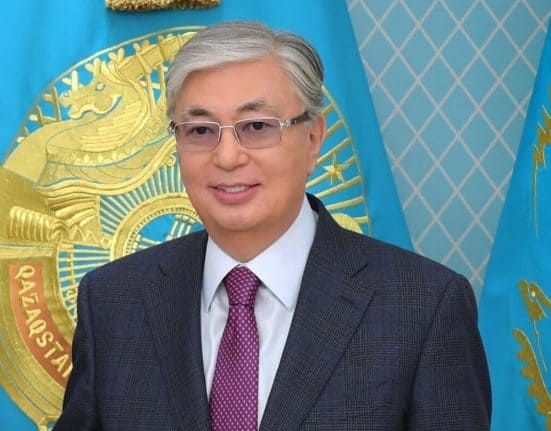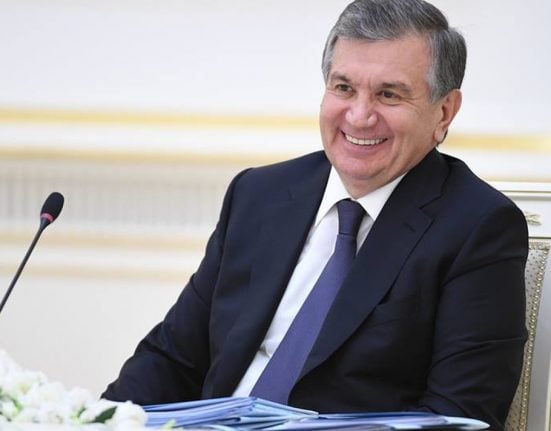The developers of the scandalous bill, which strengthens control over social networks, managed to push through some anti-democratic norms, despite public outcry and assurances from deputies that they would not let them through.
As ACCA has already reported, on May 4, President of Kazakhstan Kassym-Jomart Tokayev signed the law “On amendments and additions to certain legislative acts on the protection of the rights of the child, education, information and informatization”.
Even at the drafting stage, this law made a lot of noise, as it strengthened control over social networks and endowed the authorized body represented by the Ministry of Information and Social Development with broad powers that allowed it to restrict access or suspend the operation of Internet resources, social networks and instant messengers at its own discretion.
These amendments were categorically opposed by journalists and public figures. Despite their protests, the bill was nevertheless sent for approval to the Senate (the Upper House of Parliament). According to the legislation of Kazakhstan, the drafter of the bill first sends it for consideration to Mazhilis (Lower House), then to the Senate, and only then, having received the consent of both chambers, to the head of state for the signature.
So the Senate didn’t pass these scandalous amendments.
“The senators removed broad powers from the bill, which allowed the authorized body to restrict access at its own discretion, or suspend the operation of Internet resources, social networks and instant messengers,” Senate Speaker Maulen Ashimbaev said at the plenary session at which this bill was considered.
After that, the bill was returned for revision to the Lower House and, after corrections, sent for signature to the head of state. Accordingly, Kazakhstanis were sure that anti-democratic norms were excluded from it. However, as it turned out, not all …
Today the text of the law appeared in the press. This means that it has already entered into force. ACCA carefully studied it and found that, despite the softening in comparison with the original version, the authorized body retained control over social networks.
It’s worth recalling that in the first version, the developers of the bill proposed to oblige foreign social networks and instant messengers to open their official representative offices in Kazakhstan, which would interact with the authorized body. However, later an amendment was made that it’s not necessary to open representative offices in Kazakhstan, it’s enough to appoint a legal representative, and he/she doesn’t even have to be in the country. This provision remained in the approved law. Moreover, foreign social networks and instant messengers have six months to appoint their legal representative to interact with the government agencies of Kazakhstan. And not for everyone, but only for those who have an average daily access of more than 100,000 users per month.
“In the event that a foreign online platform or instant messaging service continues to operate without complying with this requirement, the authorized body in the field of mass media has the right to restrict their activities on the territory of Kazakhstan,” the law says.
Therefore, if Facebook, WhatsApp, Instagram, Twitter, Telegram and other popular services don’t appoint a representative to work with the Ministry of Kazakhstan in the next six months, they will be blocked.
In addition, according to the approved law, any online platform or instant messaging service operating on the Internet in Kazakhstan is now required to install a program to determine the number of its users. If they don’t do this, then the Ministry itself will calculate the average daily number of users.
The original version of the bill included another scandalous provision obliging social networks and instant messengers to remove illegal content (primarily cyberbullying against children) within 24 hours after receiving a notification from the authorized body.
“These proposals threaten to infringe human rights and interests. They allow the Ministry of Information and Social Development, under the pretext of protecting children from online bullying, to demand the removal of almost any content, limiting access to the entire foreign Internet platform in case of refusal. These amendments are unconstitutional, because they contradict the Constitution of Kazakhstan,” these amendments were then described in the international center of journalism “MediaNet”.
Alas, in a slightly modified, less strict form, but these amendments remained.
Firstly, the law now defines cyberbullying or bullying. These are systematic (two or more times) actions of a humiliating nature, harassment and (or) intimidation, including those aimed at compulsion to commit or refuse to commit any action, as well as the same actions committed in public or using the mass media and (or) telecommunications networks.
Secondly, it’s determined that any citizen or legal representative of a child, in case of detection of facts of cyberbullying against a child, can apply to the authorized body with a statement. This application will be reviewed by an expert working group within three working days. Initially, it was that only an authorized body would deal with such facts, now they have softened under pressure from the public. But will it help? It seems not! Because the same law states: “The procedure for creating an expert group, as well as considering an application on the facts of cyberbullying against a child, is determined by the authorized body.”
If the expert group comes to the conclusion that the fact of cyberbullying is confirmed, then a notification is sent to the legal representative of social networks or instant messengers about the removal of this information. The term for its fulfilment (24 hours), which also caused public discontent, still remained in the law. True, it doesn’t contain an amendment that in case of non-compliance with this norm, access to networks or instant messengers will be blocked by decision of the authorized body.
In general, as they say, although the pill was sweetened, it didn’t affect its bitterness in any way. In vain, the public of Kazakhstan rejoiced that the President didn’t sign the scandalous amendments. He signed. They were just veiled.







Leave feedback about this